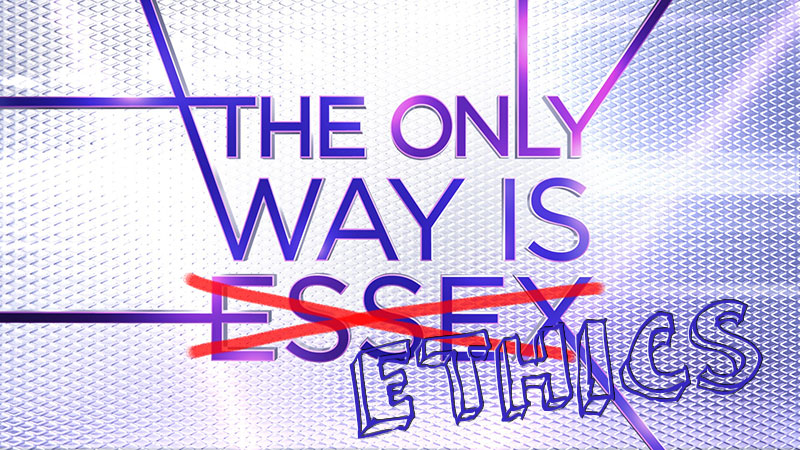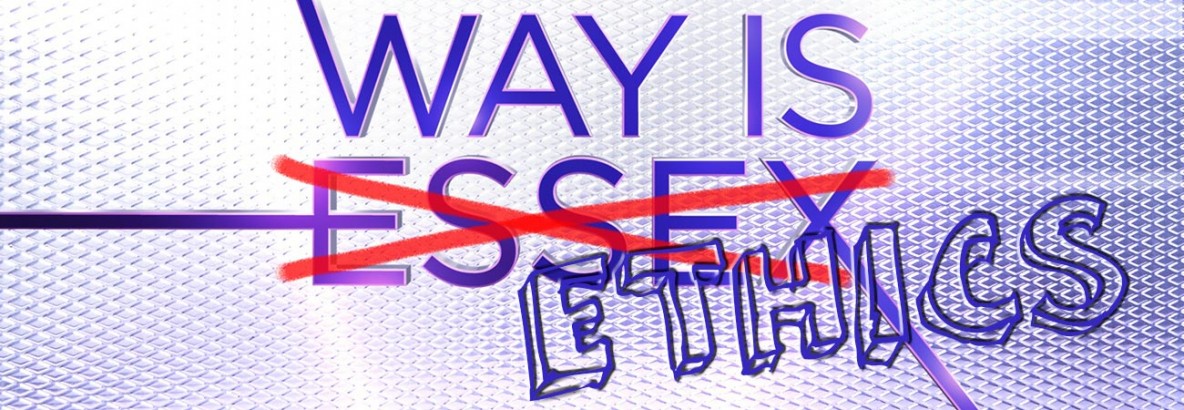Elizabeth at Rosalilium.com, in her YouTube video on the subject posed the question, should there be a bloggers code of ethics? After spending some time thinking about it, I’ve put together my response to what I feel is a very important subject within the world of blogging.
https://www.youtube.com/watch?v=7Q89m3ANGYo
Should There be a Bloggers Code of Ethics?
My initial reaction is that yes, there should be, because there’s often questions over the behaviour of bloggers, which is a sad position to be in. However my rebellious, contrarian self also feels that the essence of being a blogger is that we don’t have rules, because we’re independent voices and so don’t have to conform to any charters or regulations, that’s the whole point of being a blogger. Somewhere along the boundary of these two positions is the slightly more delicate subject of ethics.
A lot of the points raised by Elizabeth are those of integrity, about behaving in an honourable way. Don’t steal, deceive or mislead people, you’d think they’re pretty obvious points to most right-thinking people, but sadly that’s not always the case. What is it that drives bloggers to engage in these socially unacceptable behaviours which they wouldn’t dream of approaching in other contexts. If you wouldn’t walk out of a supermarket with a bottle of vodka up your sleeve, why suddenly decide it’s fine to help yourself to work which someone else has spent large amount of time creating online?
The Cloak of Invisibility.
Perhaps the relative anonymity of the internet helps to drive unscrupulous behaviour. Just because nobody will physically see you in the act of copying content or stealing images, it doesn’t make it any less of a theft, and once you’ve stolen them, they’re out there in cyberspace for everyone to see, so you probably will get caught eventually. But what’s the penalty? Nothing. Because I know that if someone stole my images, I’m unlikely to take legal action, at worst I’ll send a stroppy e-mail in the hope they’ll hold their hands up and admit guilt. It’s up to the blogger’s personal values as to whether they allow themselves to engage in content theft in the first place, because there’s very little in the way of comeback.
Flattery Will Get you Everywhere.
The flattery poured upon bloggers by brands and PR companies isn’t very conducive to developing honest, transparent content. Of course it’s incredibly charming that people want to give us freebies, treat us to experiences, or pay us to write about them, however in the cold light of day this is a simple transaction, our time for their promotion. Until bloggers see it as such there will always be a lot of grey area in the behaviour of bloggers, because it raises a massive ethical question mark.
PR companies are being paid by brands to get bloggers to write about their client’s products and bloggers love free things. But do bloggers ever give negative reviews? Do bloggers ever turn their back on a PR relationship by publicly saying “Actually, this product was rubbish”? I guess it’s unlikely, because the PR company is paymaster, be it in real money or through freebies, which are a payment in kind, they’re a non-monetary benefit for the blogger and any negativity will cut off that channel of bounty. In exchange the blogger says nice things, which from a strictly moral standpoint is somewhat corrupt, because it becomes little more than bribery. Open any respectable magazine and you will find good reviews sitting alongside bad ones, because that is what objective journalism is about, and that’s something bloggers should aspire to. Of course, by saying bad things about a product, a blogger may well sour any future relations with that purveyor of products and that must seem a bit too scary for some. But why is that so? We shouldn’t be doing this for the freebies.

Transparency.
And at what point does this bribery become honesty? As Elizabeth says, it’s in the transparency of the communication. Sponsorship, brand affiliation and product promotion are all perfectly reasonable and legal pursuits when done openly (although Bill Hicks might disagree), because it’s the way in which you conduct those activities where the nuanced details exist. Any affiliation, payment or ties with a brand are important information for the audience and should be openly stated on any blogs, so that a reader is aware of the author’s relationship with the brand. Taken to it’s extreme, advertising a product in a blog post without announcing that it is an advertisement is illegal.
Money, money, money-tisation.
But what drives unethical behaviour? When I first became aware of blogging, it was this online journal-type phenomenon alongside MySpace, it was a way to document your world online. I even dabbled in it during 2007, but at that time in my life I was to wrapped up in other things to pursue it. I came back to it in 2014 and was amazed at how it had all changed. Did you know you can make a load of money in blogging? Yes, I bet you do, as many sites will explain in detail, you can make shed loads of money in blogging, literally millions. You can also make it into the glossy magazines and billboards, finding your face plastered all over town if you hit the big time.
Which perhaps is the root of the problem. Apologies in advance for getting all biblical about this, but as we all know, “For the love of money is the root of all kinds of evil.”, and to my mind that’s where the problem does in fact lay. It’s the pursuit of blogging for money and fame or even as a road to freebies and experiences that drives people in desperation to seek whatever route they can to shamelessly self promote their blog, giving little thought to whether they do it in an ethical way or not.
What Did You Expect, Easy Money?
I was talking to someone yesterday morning, who commented on how making YouTube videos and getting millions of followers appears so simple. They weren’t naive, underestimating the process, because they understood the work involved, but moreso commenting that from the outside it all seems so easy, talking about your day on YouTube. Following that logic, it could be tempting to start a blog or vlog with the aim of fame and fortune, because how hard can it be? But when it suddenly appears to be somewhat more difficult than you first imagined, shortcuts through other people’s work or shamelessly grabbing any opportunity at exposure must seem incredibly tempting if there’s a chance it will get you a few steps closer to the big $$$ signs plastered across the internet.
I’ve even had people e-mail me through my site, desperately asking for help monetising their blog. I have to point out that in actual fact my blog costs me money rather than getting an income from it (although my blog has helped me develop a separate new career as a photographer) and that there might be better people to ask, sending them in the direction of one of the many ‘monetise your blog for only $29 a month’ schemes. However, we can’t stop this rollercoaster of fame and fortune through blogging, because one of the perks of living in the free capitalist market that we do, is that these opportunities are available to us.
Please Sign Here…
Equally, you can’t get people to sign under the dotted line to a set of guidelines when starting a blog and all the time there are sites posting about how to make $30k+ a month and bloggers finding contemporary fame, you’re going to get unscrupulous behaviour. People who blog for the sake of blogging rather than for fame and fortune are the ones who will listen and act respectfully. Maybe a bloggers code of ethics or ‘best practice’ guidelines for bloggers is a good idea, something that can sit out there, to help guide those who are starting out, or who are simply uncertain how to do things. If we’re lucky then those who are tempted by shortcuts and deception might even stumble across these suggestions and consider their ways. It’s up to the individual to develop their own sense of morality, because for most people blogging is simply a hobby, and it’s impossible to regulate with a code of ethics.
Brave Keyboard Warrior.
But also, bloggers need to be brave. That may sound odd for someone sitting behind a computer screen, safely hidden from the dangers of the outside world and far removed from the perils of battle or any gladiatorial siege. However, bloggers need to be brave because we need to form opinions and say what we think, not being subject to whimsical changes of opinion depending on what brand contacts us that week. Because being honest, true and acting with integrity is often the most difficult and personally challenging route. It’s the one that requires deeper thought, inner turmoil and requires you to question your actions. Doing that is brave, especially if you hit “Publish” after you’ve written it.
However, I will add one point, one of integrity. Bloggers need to be honourable. We need to stick to our word. Do what we say we’re going to do. The largest investment most bloggers make in their work is time, lots and lots of time. We all know that time is valuable and I’m yet to meet someone who feels they have too much of it. So when a blogger’s work is stolen, it’s their precious time you’re stealing. When you don’t turn up to a PR event, it could be several people’s time that you’re wasting, as well as their money. And don’t think that a company’s money or time doesn’t count. Many small business are founded on the financial scrapings of one person, who might have put their last pennies into giving their dream a shot and companies are just a collection of people. If you agree to work for a brand, do it when you say you will, because otherwise, you are wasting many people’s time and money.
It’s All About YOU.
I feel there’s a strange, personal point below all of this. It’s all about how you value yourself. To produce your own content in an honest, open and transparent way, striving to improve and create the best work you can, including disclosure of any affiliations or sponsorship shows a truth and honesty within yourself, as if you have faith in yourself. Lying, hiding or stealing content and covering up any professional relationships doesn’t bode well in terms of your own opinion of yourself and what you want to achieve, because you’re just hiding behind a mask.
I try to ask myself, in everything I do “Is that the best you can do?”, which means not only the best for me, but also for everyone else in the world. It’s only by acting with integrity and doing the best you can for everyone, rather than just yourself, that ethical behaviour will become second nature.

